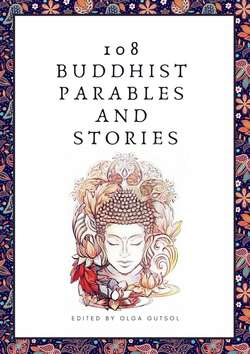Читать книгу 108 Buddhist Parables and Stories - Olga Gutsol - Страница 7
На сайте Литреса книга снята с продажи.
5. THE THREE WOES
ОглавлениеAs the chained elephant longs for the wilds of the jungles, so the prince got bored with the royal entertainments and asked his father for permission to see the world outside of the palace. King Suddhodana ordered a jewel-fronted chariot and commanded the roads to be adorned where his son would pass and cleared of the old, sick, dead and holy men. Yet the celestial beings had other plans for Siddhartha.
The houses of the city were decorated with curtains and banners, and spectators arranged themselves on either side, eagerly gazing at the heir to the throne. Thus Siddhartha rode with Channa, his charioteer, through the streets of the city, and into a country watered by rivulets and covered with pleasant trees.
Suddenly, by the wayside an old man appeared with bent frame, wrinkled face and sorrowful brow. The prince asked the charioteer, “Who is this? His head is white, his eyes are bleared, and his body is withered. He can barely walk.”
At first the charioteer did not dare to speak the truth. But eventually, much embarrassed, he explained, saying, “These are the symptoms of old age. This same man was once a suckling child, and as a youth full of sportive life; but now, as years have passed away, his beauty is gone and the strength of his life is wasted.”
Siddhartha was greatly affected by the words of the charioteer, and he sighed because of the pain of old age. “What joy or pleasure can men take,” he thought to himself, “when they know they must soon wither and pine away!”
Shortly after they were passing on, a sick man appeared on the way-side, gasping for breath. His body was disfigured, convulsed and groaning with pain. The prince asked his charioteer, “What kind of man is this?”
The charioteer replied, “This man is sick. The four elements of his body are confused and out of order. We are all subject to such conditions: the poor and the rich, the ignorant and the wise, all creatures that have bodies are liable to the same calamity.”
And Siddhartha was still more moved. All pleasures appeared stale to him, and he loathed the joys of life.
The charioteer sped the horses on to escape the dreary sight, when out of a sudden they were stopped in their course by four persons passing by and carrying a corpse. The prince, shuddering at the sight of a lifeless body, asked the charioteer, “What is this they carry? There are streamers and flower garlands; but the men that follow are overwhelmed with grief!”
The charioteer replied, “This is a dead man: his life is gone; his thoughts are still; his family and friends now carry his corpse to the burnings grounds.”
“Is this the only dead man, he asked, or does the world contain other instances?” asked Siddhartha filled with awe and terror.
With a heavy heart the charioteer replied, “All over the world it is the same. He who begins life must end it. There is no escape from death.”
With bated breath and stammering accents the prince exclaimed, “O worldly men! How fatal is your delusion! Inevitably your body will crumble to dust, yet carelessly you live on.”
The charioteer observing the deep impression these sights had made on the prince, turned his horses and drove back to the city. Siddhartha having returned home looked with disdain upon the treasures of his palace. His wife welcomed him and entreated him to tell her the cause of his grief. He said, “I see everywhere the impression of change; therefore, my heart is heavy. Men grow old, sicken, and die. That is enough to take away the zest of life.”
The king, hearing that the prince had become estranged from pleasure, was greatly overcome with sorrow.
